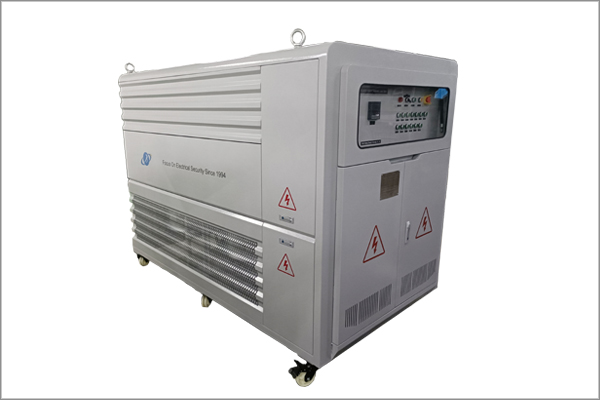The role of AC load banks in the detection of backup power supplies
Time:2025-07-24
AC load banks play a crucial role in the testing of backup power supplies, serving as key equipment to ensure the reliable operation of backup power systems. As the "lifeline" for dealing with sudden failures of the main power supply, the performance of backup power supplies is directly related to the continuous operation of critical places such as hospitals, data centers, and communication base stations, and AC load banks are the core tools to verify this reliability.
During the installation and commissioning phase of the backup power system, AC load banks can simulate various load conditions in actual operation to conduct comprehensive tests on equipment such as generators and uninterruptible power supplies (UPS). By applying different levels of loads — from light loads to full loads, and even short-term overloads — they can accurately test key parameters of the backup power supply such as output voltage, frequency stability, and waveform distortion rate, ensuring that the equipment works normally within the design standards. For example, in the commissioning of backup generators in hospitals, AC load banks simulate the electrical load of departments such as operating rooms and intensive care units, which can verify whether the generator maintains stable power supply under complex loads, avoiding the impact of power fluctuations on the operation of medical equipment.
In daily maintenance, the role of AC load banks is equally irreplaceable. Backup power supplies are in a standby state for a long time, which is prone to hidden problems such as attenuation of battery capacity and blockage of the engine fuel system. These problems are difficult to expose under light or no load. However, AC load banks can force these potential faults to appear by applying rated load or even 110% overload tests. For instance, conducting a full-load operation test on a diesel generator can check its continuous power supply capacity, the efficiency of the cooling system, and whether fuel consumption is normal, ensuring that the backup power supply can "be deployed and hold up" when the main power supply is interrupted.
In addition, AC load banks also provide data support for the performance optimization of backup power supplies. By recording the operation data of equipment under different loads, technicians can analyze the load characteristics of the power supply system, adjust parameter settings to match actual power demand, and reduce energy waste. In scenarios where new energy sources are combined with backup power supplies, AC load banks can simulate the connected loads of photovoltaic and energy storage systems, test the switching logic and cooperative operation capability of hybrid power systems, and promote the development of backup power supplies towards high efficiency and greenness.
In conclusion, through scientific load simulation and strict performance testing, AC load banks guarantee the reliability of backup power supplies, acting as "safety guards" to prevent the risk of power supply failures and ensure the continuous operation of critical facilities.
News Recommendation
-
 2024-09-11
2024-09-11TRIUMPH LOAD EXHIBITING AT Enlit Europe 2024 -BOOTH 7.H08
-
 2023-04-21
2023-04-21TRIUMPH LOAD EXHIBITING AT DATA CENTER WORLD GERMANY 2023-BOOTH F909
-
 2023-04-06
2023-04-06TRIUMPH LOAD EXHIBITING AT ELECTRIC POWER TECH KOREA 2023 – Booth G109
-
 2022-05-05
2022-05-05What is the role of ac load bank for power supply?
-
 2022-05-05
2022-05-05What is the role of the load bank?


